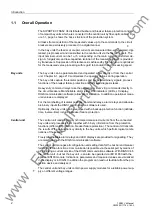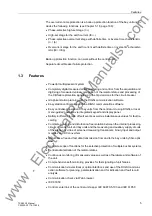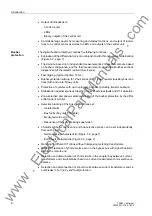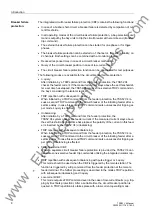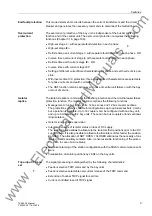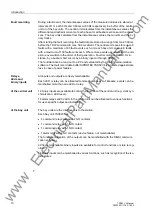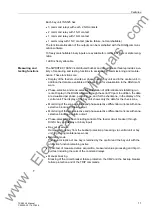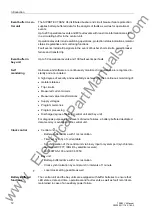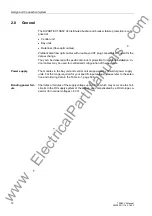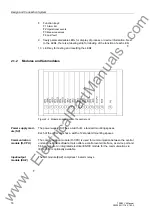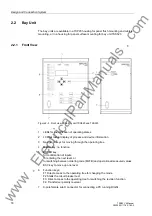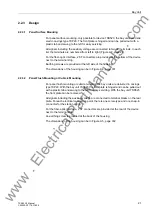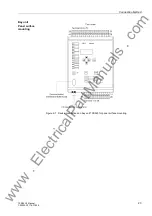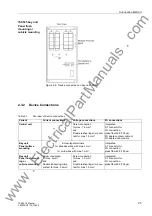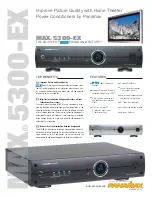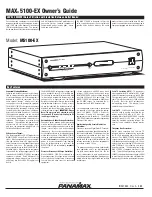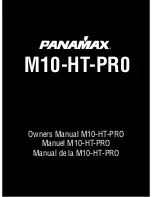
Introduction
10
7SS52 V4 Manual
C53000-G1176-C182-3
Fault recording
During a fault event, the instantaneous values of the measured values are stored at
intervals of 1 ms at 50 Hz and 0.83 ms at 60 Hz respectively
in a buffer of the central
unit or of the bay units. The central unit calculates from the instantaneous values the
differential and restraint currents of each phase for all busbar sections and the check
zone. The bay units calculate from the instantaneous values the currents and the bi-
nary tracks.
After starting the fault recording, the fault data are stored in a range from max. 500 ms
before the TRIP command to max. 500 ms after it. The central units can store up to 8
faults with a maximum of 80 fault events each, and each bay unit can store
8 faults
with a maximum of 100 fault events each. Where more events are generated, the old-
est are overwritten in the order of their generation. Fault recording is started, for in-
stance, by a busbar short circuit, by a binary input or through DIGSI.
The fault data can be read out to a PC and evaluated by the DIGSI communication
software. The fault record data buffer SIPROTEC 7SS52 V4 is protected against data
loss in case of power failures.
Relays,
LEds and
binary inputs
All inputs and outputs are freely marshallable.
Each LED or relay can be allocated to more than one event; likewise, events can be
marshalled more than one LED or relay.
of the central unit
12 binary inputs are available to control the functions of the central unit (e.g. clock syn-
chronization, LED reset).
16 alarm relays and 32 LED in the central unit can be allocated to various functions
for user-specific output and indication.
of the bay unit
The bay units are the interface link to the station.
Each bay unit 7SS523 has
•
4 command relays with each 2 NO contacts
•
1 command relay with 1 NO contact
•
1 command relay with 1 NO contact
•
1alarm relay with 2 NC contacts (device failure, not marshallable)
The functional allocation of the outputs can be marshalled with the DIGSI communi-
cation software.
20 freely marshallable binary inputs are available for control functions or state recog-
nition.
16 binary inputs can be marshalled to various functions, such as recognition of the iso-
lator states.
www
. ElectricalPartManuals
. com







